Experiencing the work of a landmine clearance charity
- Published
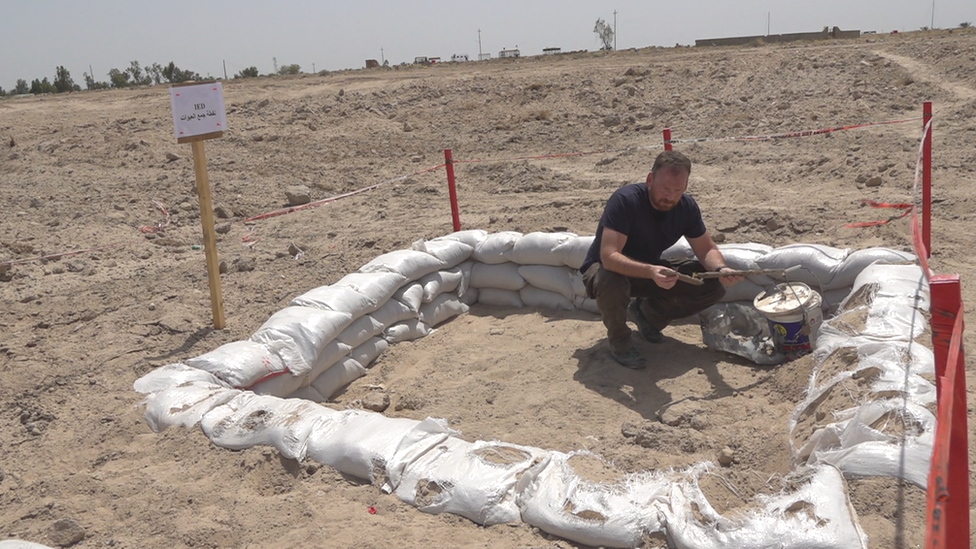
Even though it was safe, holding the device was still chilling
Even though I was told it was safe, holding an Islamic State group (IS) homemade explosive was still unnerving.
Half an hour earlier it had been buried in the ground on the outskirts of the Iraqi city of Fallujah.
It was made up of two pieces of wood with bits of cut-up hosepipe. A length of wire ran to a plastic tub of homemade explosives.
The fact that it looked like all the components could have been bought in a local hardware shop made it quite chilling.
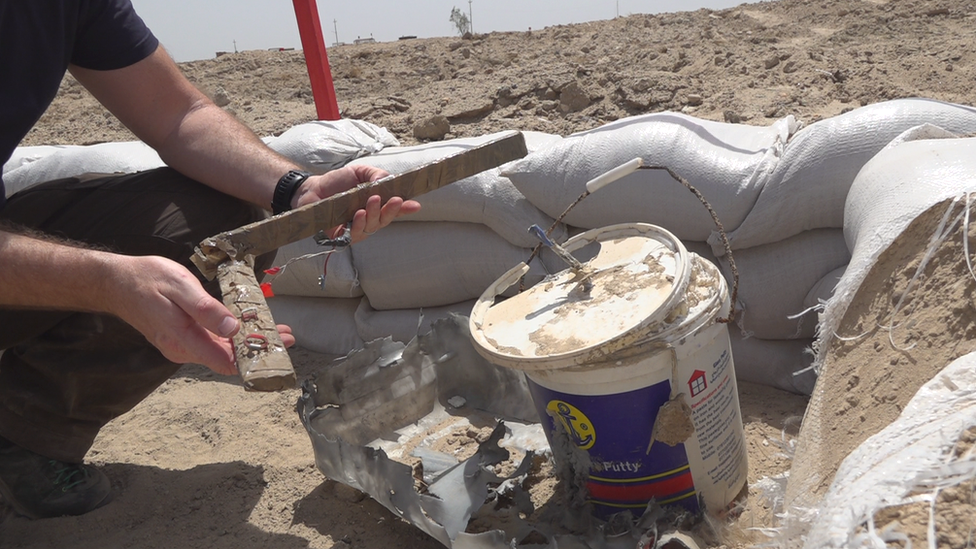
The components could have been bought in a hardware store but they would have been lethal
It was one of a long line of Improvised Explosive Devices (IED) that had been laid out during the battle for the city in 2016.
The group calling itself Islamic State had seized large areas of Iraq in the previous couple of years before being largely driven out by Iraqi government forces.
Cities such as Fallujah were surrounded by barriers of home-made mines, many kilometres in length.
The team that unearthed the device I picked up was run by Chris Cooper from the Halo Trust, the world's largest mine-clearing organisation.
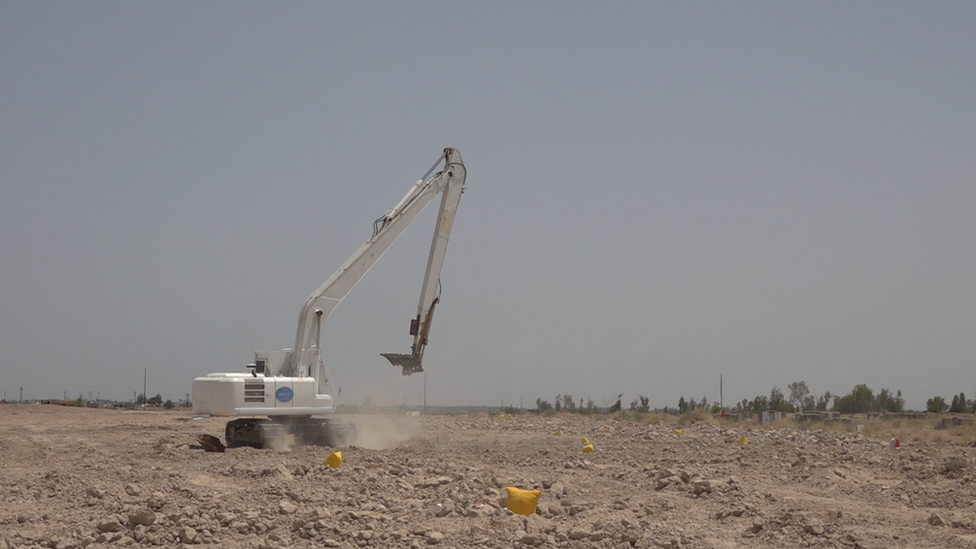
Halo uses an excavator to dig through the ground to bring hidden devices to the surface
Halo operates out of a small office in Dumfries where it was founded 30 years ago. Now it works in more than 25 countries and in places like Afghanistan it has thousands of workers.
It has only had teams training people in Iraq for about a year.
"The days of prodding are gone," says Chris, as we walk across a large football pitch-sized area of rough ground.
"We're generally using an excavator to dig through the ground to bring anything to the surface."
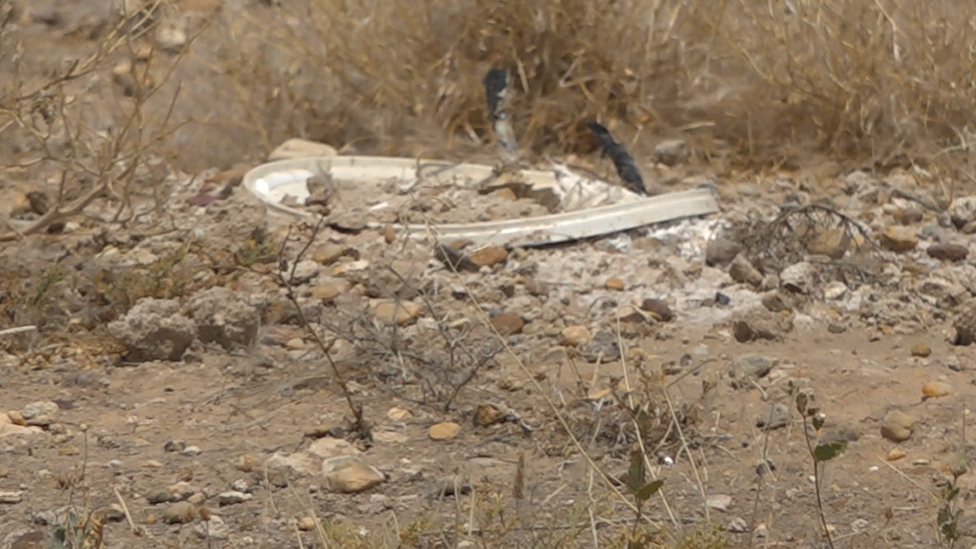
Chris points to a suspected IED about 20 yards away, a wire sticking out of the ground
As we stand on the edge of the cleared area Chris points to a suspected IED about 20 yards away, a wire sticking out of the ground. Then he points to the ground much closer.
He says: "I think there's another one just there actually, looking at the pattern of the ground. It's how they've been laid in the area, rows staggered apart about eight to 10 metres."
Halo's Iraq operation to clear the mines is run by former army officer Frank Philip from Edinburgh.
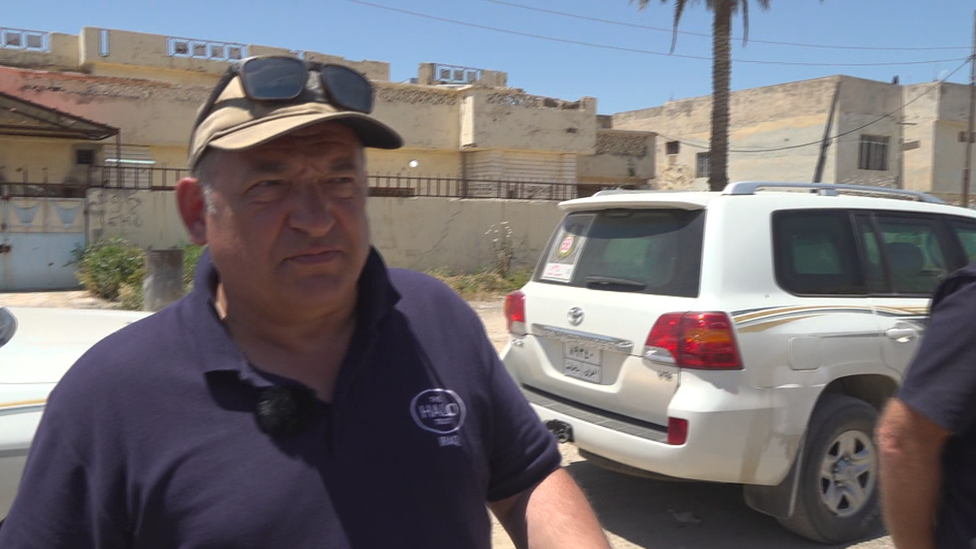
Frank Philip has been setting up the Halo Trust operation in Iraq
I travelled with him in an armoured convoy, slowly driving through the bombed-out streets of a suburb of the city.
There is destruction as far as the eye can see, home after home, street after street, completely flattened.
But even then you could catch the occasional glimpse of families moving back in among the rubble.
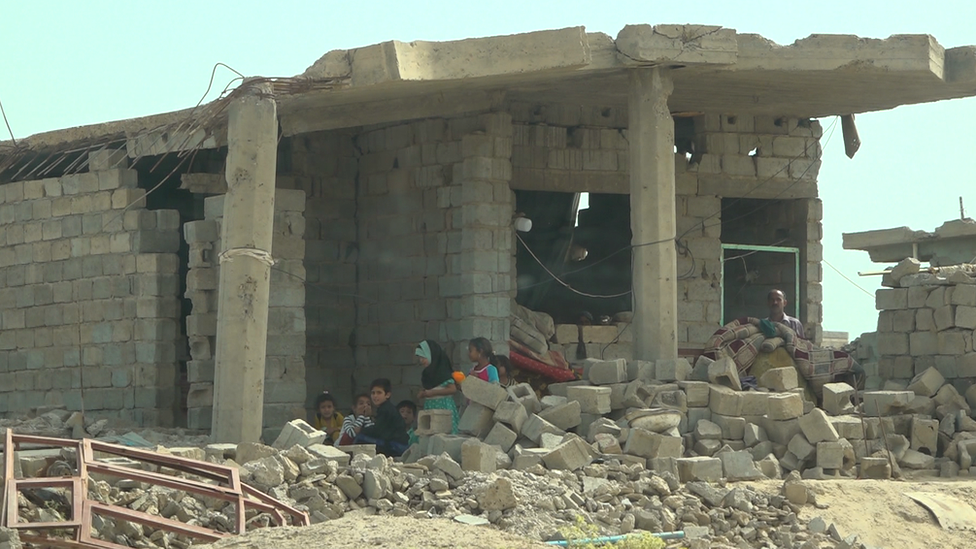
Much of Fallujah is totally devastated but people are starting to return
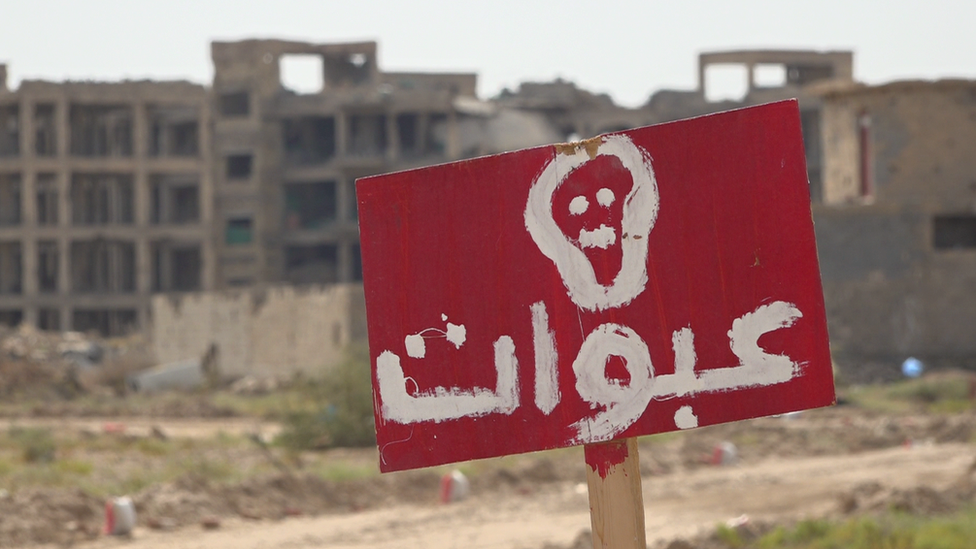
Frank says: "The devastation is total but people are coming back into this area now.
"They're building new and repairing what was destroyed. The land belongs to them, they want to rebuild, they want to come back here."
Frank says the levels of mine and explosive contamination in Iraq are the worst in the world and that is holding up any development in the area, preventing hundreds of thousands of people returning to their homes.
He says: "Dealing with the legacy of IS is going to take a number of years, I wouldn't dare to try to put an estimate on it.
"And once that's done there's still the legacy from numerous previous wars, I would guess at a least a decade."